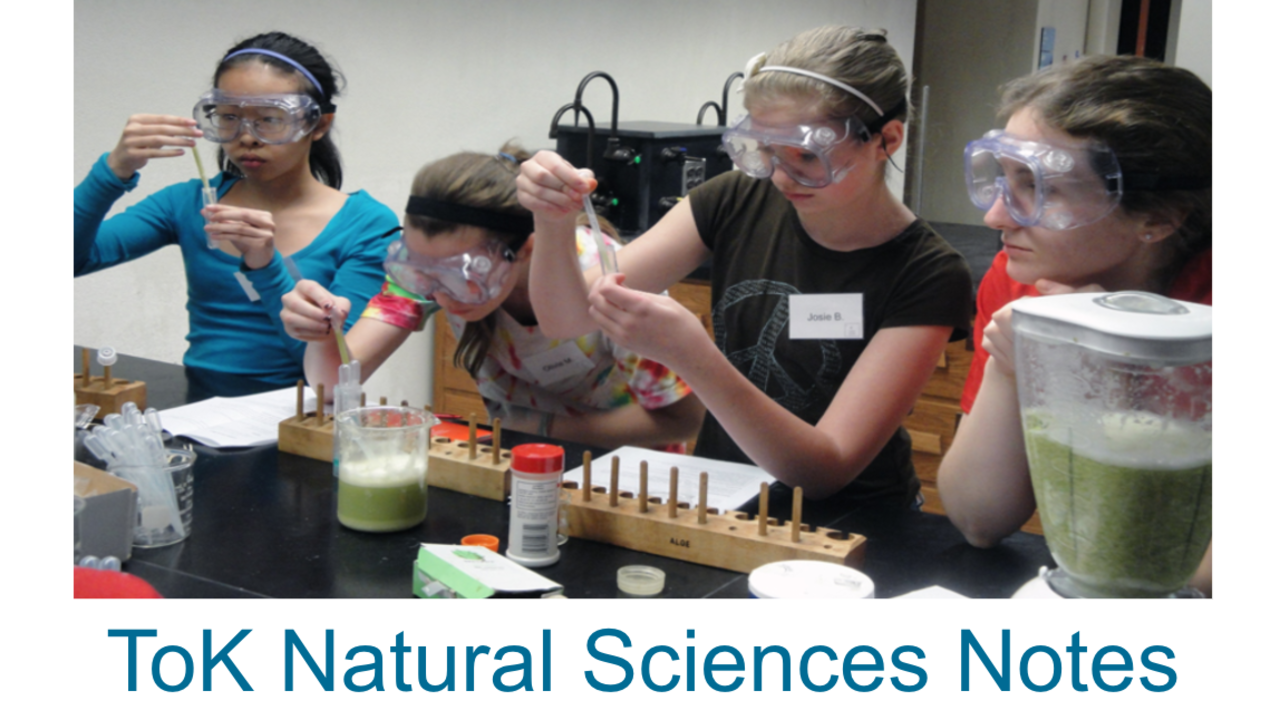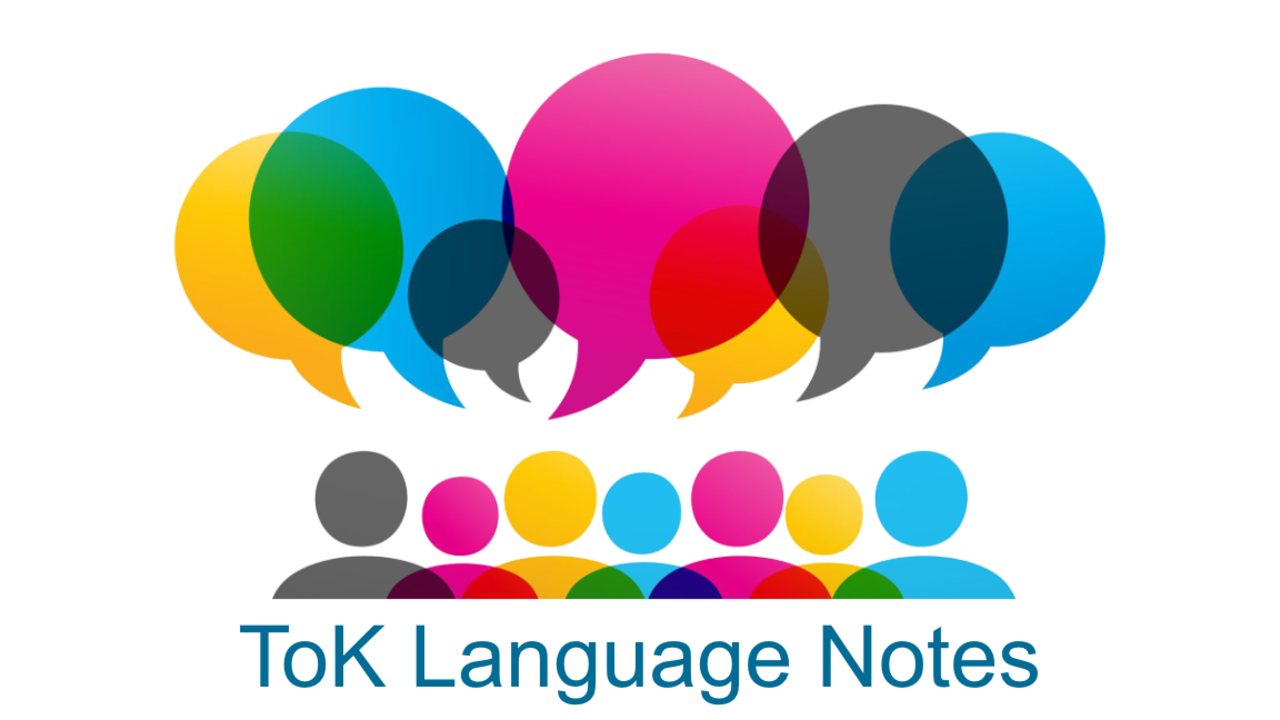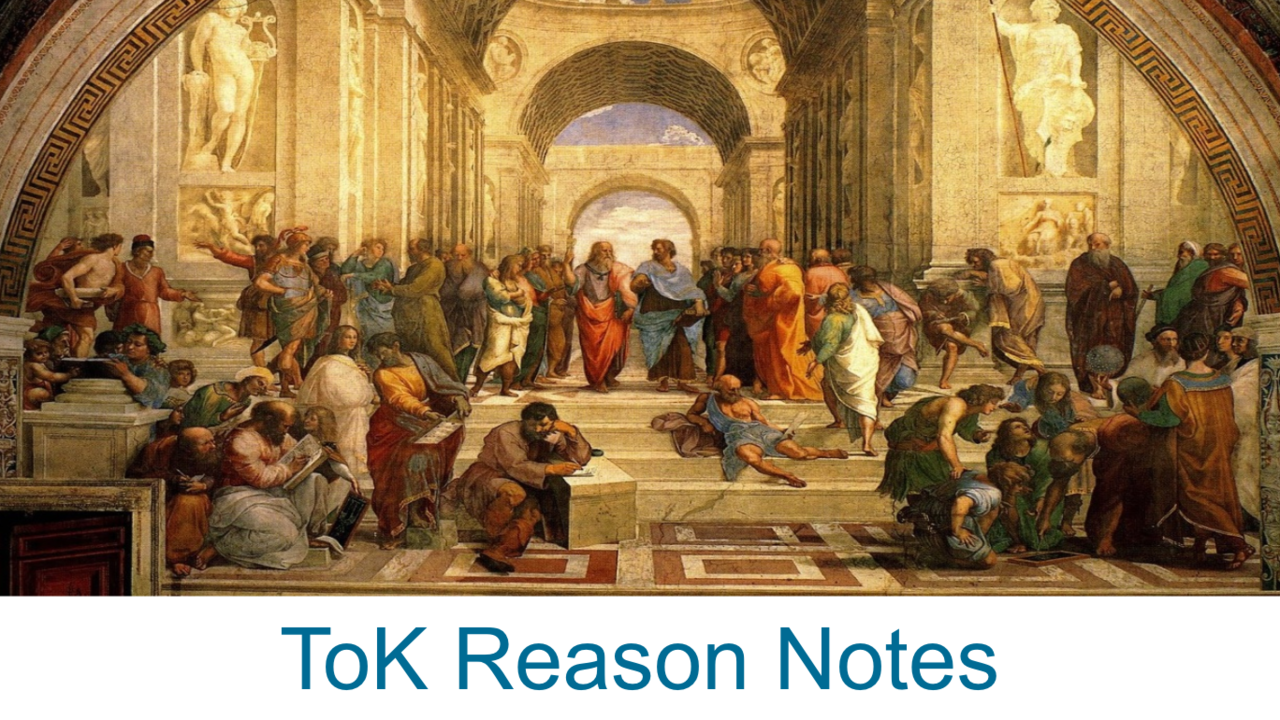Imagination Notes - Theory of Knowledge

Imagination Quotes
- "You can't depend on your eyes when your imagination is out of focus." (Mark Twain)
- "The true sign of intelligence is not knowledge but imagination." (Albert Einstein)

- "To imagine is everything, to know is nothing at all." (Anatole France)
- "No amount of skillful invention can replace the essential element of imagination." (Edward Hopper)
- "Imagination grows by exercise, and contrary to common belief, is more powerful in the mature than in the young." (W. Somerset Maugham)
- "The imagination is man’s power over nature." (Wallace Stevens)
- “Don't tell me the moon is shining; show me the glint of light on broken glass.” (Anton Chekhov)
- Reason is the natural order of truth; but imag ...
Natural Science Notes - Theory of Knowledge

Natural Science Quotes
- "It ha
 s been said that man is a rational animal. All my life I have been searching for evidence which could support this." (Bertrand Russell)
s been said that man is a rational animal. All my life I have been searching for evidence which could support this." (Bertrand Russell) - "I do not feel obliged to believe that the same God who has endowed us with sense, reason, and intellect has intended us to forgo their use." (Galileo Galilei)
- "He that will not reason is a bigot; he that cannot reason is a fool; and he that dares not reason is a slave." (William Drummond)
- “As a matter of historical fact, the history of science is, by and large, a history of progress.” (Karl Popper)
- "Critical reason is the only alternative to violence so far discovered." (Karl Popper)
- "Reason itself is a matter of ...
Mathematics Notes - Theory of Knowledge

Mathematics Quotes
- "Mathematics is the abstract key which turns the lock of the universe" (John Polkinghorne).
- "Everything that can be counted does not count. Everything that counts cannot be counted" (Albert Einstein).
- "A mathematician is a machine for turning coffee into theorems" (Paul Erdos).
- "When you have satisfied yourself that the theorem is true, you start proving it" (Arthur Koestler).
- "If mathematics describes an objective world just like physics, there is no reason why inductive methods should not be applied in mathematics just the same as in physics" Kurt Godel).
- "On each decision, the mathematical analysis only got me to the point where my intuition had to take over." ...
Indigenous Knowledge Systems Notes - Theory of Knowledge

Quotes
-
"We are not myths of the past, ruins in the jungle, or zoos. We are people and we want to be respected, not to be victims of intolerance and racism" (Rigoberta Menchu Tum).
-
“To the early Native people, education was a part of everyday life. Their books were the rocks, the rivers and lakes, the trees and roots, the sun, the moon and the stars. It was from these elements that they fashioned their material culture. Creative life was in everything. One loved nature and nature loved in return. The people believed in only one Supreme Being, The Creator, whose mighty power governs and directs the beginning and end of all things.” (Harold Flett)
-
“Pow wows are a time to put differences aside and to celebrate traditions, mostly it is the time to celebrate life. A Pow wow strengthens an entire race of people. To be Anishinabe is to be proud, to know who you are, and where you came from.” (Harold Flett).
-
"Everything on the earth has a purpose, every disease an herb to cu
...
Art Notes - Theory of Knowledge

Art Quotes
- "Art is what you can get away with." (Andy Warhol)
- "Art is meant to disturb, science reassures." (Georges Braque)
- "The only end of writing is to enable the readers better enjoy life or better to endure it." (Samuel Johnson)
- 'Lying, the telling of beautiful untrue things, is the proper aim of art." (Oscar Wilde)
- "We all know that Art is not truth. Art is a lie that makes us realize truth." (Pablo Picasso)
- "Without music, life would be a mistake." (Friedrich Nietzsche)
- "By words one transmits thoughts to another; by means of art, one transmits feelings." (Leo Tolstoy)
Definitions of Art
-
"Art is not a handicraft, it is the transmission of feeling the artist has experienced." (Leo Tolstoy)
-
"Art has to move you and design does not, unless it's a good design for a bus." (David Hockney)
-
"Filling a space in a beautiful way. That's what art means to me." (Georgia O'Keeffe)
-
"Art is something we do, a verb. Art is an expression of our thoughts, emotions
...
Language Notes - Theory of Knowledge

Language Quotes
- "How often misused words generate misleading thoughts" (Herbert Spencer)
- "The limits of my language stand for the limits of my world" (Ludwig Wittgenstein)
- "If thought corrupts language, language can also corrupt thought." (George Orwell)
- "Language was given to man to disguise his thoughts." (Talleyrand)
- "Who does not know another language, does not know his own." (Goethe)
- "Language was the real innovation in our biological evolution; everything since has just made our words travel faster or last longer." (Steven Pinker)
- "Man is the animal that speaks. Understanding language is thus the key to understanding man." (Thomas Szasz)
Language Definitions
As with just about ...
Intuition Notes - Theory of Knowledge

Intuition Quotes
- “I belie
 ve in intuitions and inspirations...I sometimes FEEL that I am right. I do not KNOW that I am.” (Albert Einstein)
ve in intuitions and inspirations...I sometimes FEEL that I am right. I do not KNOW that I am.” (Albert Einstein) -
“Don’t let the noise of others’ opinions drown out your own inner voice." (Steve Jobs)
- "Intuition is the clear conception of the whole at once" (Johann Kaspar Lavater).
- “Intuition is a spiritual faculty and does not explain, but simply points the way” (Florence Scovel Shinn)
- “I’m supposed to be a scientific person but I use intuition more than logic in making basic decisions” (Seymour R. Cray)
- “Knowledge begins with intuitions, proceeds from thence to concepts, and then ends with ideas” (Immanuel Kant)
- "Thoughts without content are empty, intuitio ...
Faith Notes - Theory of Knowledge

Faith Quotes
 “Faith consists in believing when it is beyond the power of reason to believe.” (Voltaire)
“Faith consists in believing when it is beyond the power of reason to believe.” (Voltaire)- “Faith means believing the unbelievable.” (Anonymous)
- "Some, indeed, demand to have the law proved, but this is because they lack education; for it shows lack of education not to know of what we should require proof, and of what we should not. For it is quite impossible that everything should have a proof; the process would go on to infinity, so there would be no proof... “ (Aristotle, Metaphysics)
- “Faith is a passionate intuition.” (William Wordsworth)
- “Faith is to believe what we do not see, and the reward of this faith is to see what we believe.” (St Augustine)
Faith Definitions
- "Strong belief in the d ...
Reason Notes - Theory of Knowledge

Reason Quotes
- "It has been said that man is a rational animal. All my life I have been searching for evidence which could support this." (Bertrand Russell)
- "I do not feel obliged to believe that the same God who has endowed us with sense, reason, and intellect has intended us to forgo their use." (Galileo Galilei)
- "He that will not reason is a bigot; he that cannot reason is a fool; and he that dares not reason is a slave." (William Drummond)
- "Critical reason is the only alternative to violence so far discovered." (Karl Popper)
- "Reason itself is a matter of faith. It is an act of faith to assert that our thoughts have any relation to reality at all." (G K Chesterton)
- 'You do not reason a man out of ...
Memory Notes - Theory of Knowledge

Memory Quotes
- "We can invent only with memory." (Alphonse Karr)
- “Memory and imagination help [a man] as he works. Not only his own thoughts, but the thoughts of the men of past ages guide his hands; and, as a part of the human race, he creates.” (William Morris)
- “Memory feeds imagination.” (Amy Tan)
- “Memory is imagination in reverse.” (Stephen Evans)
- "Memory is deceptive because it is coloured by today’s events." (Albert Einstein)
- "It’s surprising how much memory is built around things unnoticed at the time." (Barbara Kingsolver)
- "Memory is man’s greatest friend and worst enemy." (Gilbert Parker)
- “I always think everything is going to last forever, but nothing ever does. In fact nothing exists longer th ...






